Search
Search Results
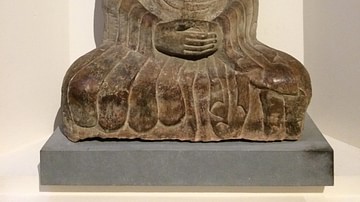
Article
The Dates of the Buddha
The dates of the Buddha, Siddhartha Gautama, have been a concern of, primarily, Western scholars for well over 100 years now owing to the particularly Western need for precise dating of historical persons and events. The problem with precise...
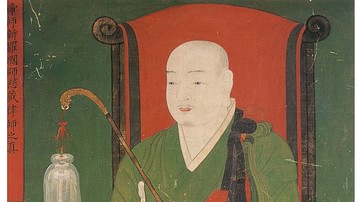
Article
Famous Buddhist Monks of Ancient Korea
Throughout ancient Korea's history Buddhist monks were a particularly important element of state and religious affairs. From the 4th century CE onwards, in the Three Kingdoms period, they were members of a select section of society which...
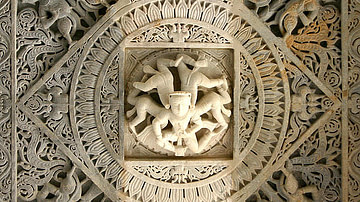
Definition
Jainism
Jainism is one of the oldest religions in the world. The name comes from jiva (soul or life force but, capitalized, is also given as Spiritual Conqueror) as it maintains that all living things possess an immortal soul which has always and...

Definition
Stupa
A stupa (literally “heap” or “pile”) is a reliquary, a shrine containing the remains of a holy or sainted person and/or artifacts (relics) associated with them, originating in India prior to the 5th century BCE as tombs of holy men and evolving...

Definition
Gilbert du Motier, Marquis de Lafayette
Marie-Joseph Paul Yves Roch Gilbert du Motier, Marquis de La Fayette (l. 1757-1834), more commonly known in the United States as simply Lafayette, was a French aristocrat, military officer, and politician. He was a major figure in both the...
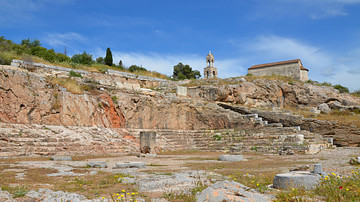
Definition
Mystery Cults
Mystery cults, or mystery religions, were ancient religious associations characterized by secrecy and initiation rites. They typically surrounded one primary deity, but some mystery cults venerated multiple deities in their rites. Members...

Definition
Kapilavastu
Kapilavastu (“Place of Kapila”) is the name of the city where Siddhartha Gautama (the Buddha, l. c. 563-483 BCE) grew up and lived for the first 29 years of his life before leaving to pursue the spiritual path which led to his enlightenment...

Definition
Utilitarianism
Utilitarianism is a philosophy founded by Jeremy Bentham (1748-1832) and then extended by other thinkers, notably John Stuart Mill (1806-1873). Utilitarianism involves the greatest happiness principle, which holds that a law or action is...
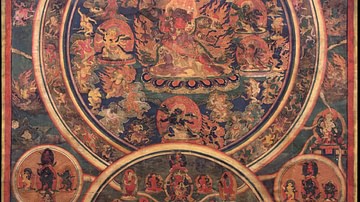
Definition
Tibetan Book of the Dead
The Tibetan Book of the Dead is the English translation of the Tibetan texts known as bar-do thos-grol (Bardo Thodol) – “Liberation Through Hearing During the Intermediate State” – and serves as a guide for the soul of the deceased after...
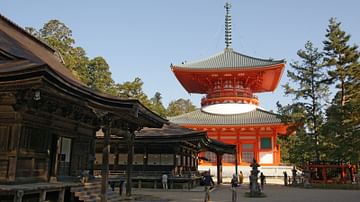
Definition
Mount Koya
Mount Koya (aka Koyasan), located in the Wakayama Prefecture, south of Osaka, Japan, is the site of a temple complex founded in 819 CE by the scholar monk Kukai as the headquarters for Shingon Buddhism. There are temples and sacred buildings...